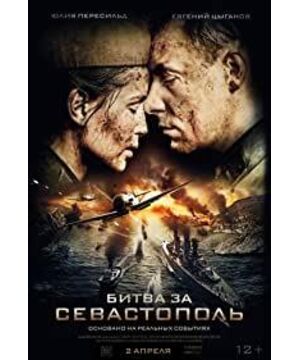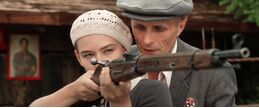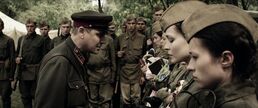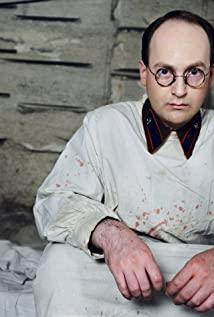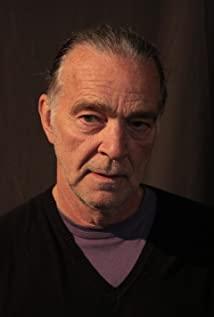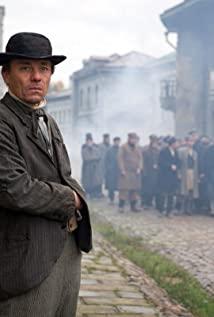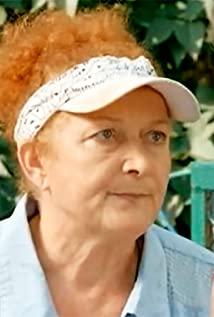Soviet Russian films have a different style from other countries. This style is achieved by its system and is an ideological style. This is the romantic realism style generally emphasized by socialist countries. Under this style, a form of film has been formed, that is, poetic film. This kind of film emphasizes the poetic expression of the film, seeks the poetry of an ordinary story, and expresses it in a poetic way. There are also people who call it writing with images. Of course, poetic movies were not born in Russia, and have their own origins in Western Europe, but the poetic movies of Soviet Russia are quite different from those of the West. Its poetic flavor is expressed on the poetic flavor of ideology, and it is a poetic flavor of revolutionary romanticism.
The rise of poetic films in Soviet Russian films is actually a reaction to the art form under the harsh politics of the former Soviet Union. It is under a strict and rigid dogma, adding a touch of soft color and a touch of human brilliance. Under the Soviet system at that time, artists were unable to expand their stories more widely, to dig deeper into human nature, and to express their richness in the background. Therefore, they could only use artistic means to make sense of Within the scope allowed by the form, do a little beautification work to make the hard story more moving. However, under the banner of poetic movies, there are indeed many business cards. Not to mention some alternative poetic film master Tarkovsky’s series of films, even mainstream films under the banner of revolutionary romantic realism, such as "Goose Nanfei", "Forty-first" and "Here "The Dawn is Quiet" and so on.
However, even the aforementioned films were not accepted in the ideological system of the former Soviet Union. Either they were criticized for advocating the bourgeois theory of human nature, or were thought to blur class boundaries, reconcile sharp contradictions between ourselves and the enemy, or were accused of showing the life style of Little Bourgeois. The above-mentioned film was even banned for a while. In the early 1980s, these banned Soviet poetic films were lifted, leaving Chinese people who were extremely hungry for artistic life as if they had tasted the rain and dew for the first time, leaving a beautiful impression that will never be extinguished. Accompany them all their lives. In the film, the female political commissar of the Red Army who wanders between love and hate, the female soldiers who bathe naked on the battlefield intermittently, and the girl who waited for her lover to return from the battlefield during the war... They gave to the Chinese at the time. Take the initial artistic enlightenment.
However, with the introduction of more excellent foreign films, when people's horizons are more broadened, when the pressure of life is getting heavier, and when the pace of the times is getting faster and faster, this kind of poetic film is gradually quieting in China. This is true even in Russia, its home country. There is a lack of poetry in life, and the cruel reality is difficult for people to look at with poetic eyes. Too much poetry is actually just a beautification of the dark reality. Therefore, in Russia, realist films have re-emerged, and more films are looking at this unsatisfactory life in a critical manner, with a calm rather than enthusiastic review. In this process, a large number of non-traditional films appeared in Russia, such as "Brothers", "Coffin 200", "Ross 88", "Ilena" and "Leviathan", etc., all of which show the reality in three parts. In the darkness, and seek the warmth of humanity in it.
But the Soviet-Russian poetic film industry has never ceased, and it is still stubbornly proving its existence. We can still see a lot of poetic shadows in the historical films made by Russia in recent years, especially those related to war. These films try to show the style of a great power that Russia has lost. They eulogize the war with a familiar technique, beautify the cruelty of the war with a poetic technique, and express the poetic flavor of war with toughness and blood. Mikhalkov is a director who has inherited the poems of Soviet-Russian films. His masterpieces "Scorching the Sun" and "The Barber of Siberia" left a very deep impression on people. He observes the history of the Stalin period with poetic eyes and dissects the cruelty with imaginative methods. However, when the history he reflected entered the war mode, when he was showing the Soviet-German war, he unconsciously fell into that kind of war poetry. In "Shot of the Sun 2", we seem to see the revolutionary romanticism of the former Soviet Union resurrected in him.
The historical film "Female Sniper" filmed in Russia this year is the ultimate interpretation of this kind of war poetry.
Originally, this should be a very attractive story, a biopic of a hero of the Soviet army. It comes from real history, and the characters are real. The "American Sniper" filmed by the United States last year is also derived from a real story, from the battlefield in Afghanistan. This film, directed by Clint Eastwood, has a very plain performance, just like a documentary, which truly shows the story of the sniper. Originally, in the heated sniper movie market, another film featuring female snipers, with real historical figures as the theme, should still attract the attention of the audience. Unfortunately, in this film, the director consciously or unconsciously chose a poetic approach to express it, so that the originally very real character image was cast with a layer of illusory poetry and became less real.
As a woman like Lyudmila, it should be said that her family environment is still very good, and she herself was admitted to the university to study history. Her father was an officer of the National Security Agency, but he regarded her as a boy in his heart, hoping that she could go on the battlefield in martial arts. By chance, her shooting talent was discovered, so she joined the army and was trained to become a female sniper. At this time the Soviet-German war broke out, and she and her companions were rushed to the front line to participate in the cruel war. With her shooting talent and tenacity and bravery, she quickly emerged as a hero of the Soviet army and a female killer who made the Nazis fearful. Her experience is quite moving, but the films made are not touching. The portrayal of the characters is not tenable, but has a strong propaganda meaning. The reason lies in the poetic aesthetics used by the director in the film.
War is cruel, cruel to the heart palpitating, because the act of war itself violates human nature. It is the shame of the development of human society by killing people who have no enmity against each other to defend a point of view and an idea. . Even a just war, after all, is achieved at the expense of human lives. Therefore, although war is sometimes necessary, when it comes to war, we do not need to beautify the war and seek the poetry in the war. There is no poetry in the fragmented body and the flying flesh and blood. We can only look at the war with compassion, and pray that the fewer wars, the better.
In fact, in the movie, as the marksman Lyudmila did not enjoy war, she was forced to participate in the war, but she was doing her responsibilities as a citizen. As a film with a background of war, it reflects another soldier who kills people. Blood and violence are inevitable. It is not impossible to show them. Many films in film history are also famous for describing this cruelty. The question is how to behave. In "Saving Private Ryan", the 20-minute-long scene at the beginning of the film also depicts the war scenes in detail, but we can't see the beauty of the war, only the cruelty and innocence of the war. significance. The director expressed this war with a compassionate look, but in "Female Sniper", Liudmila's bravery was over-emphasized, and the baptism-like significance of the war to her was emphasized lightly. Gone the suffering of war.
What is gratifying is that even in Russia, such poetic films are rare. Poetic films that are nurtured in the political environment of the Soviet socialist era and show revolutionary romanticism have also entered the twilight. "Hand" is just an elegy in the evening. Because this kind of film can only be produced in a specific ideology, it ignores or even despises human nature, puts revolution above personal life, and eulogizes a Puritan-style dedication, spreading the lives of different groups of people. Contradiction, declared a violent thought. Even under the current political situation in Russia, this ideology is gradually being abandoned. After all, this is contrary to the values of the entire human race.
View more about Battle for Sevastopol reviews


